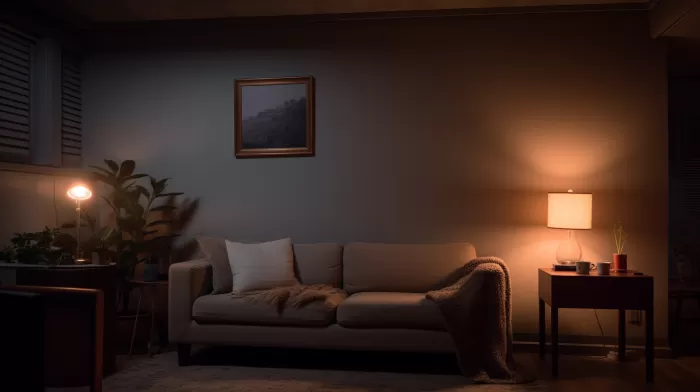Modern electricity provides countless benefits, from allowing you to snuggle up with a good book in bed to staying warm during the winter. However, it also comes with its downsides, such as the constant exposure to artificial light. The artificial light from fluorescent bulbs in stores, the floodlights in parking lots, screens of your laptop, phone, and TV, can negatively impact your health. Scientific research now shows that excessive artificial light could make you appear older and feel sicker.
To study the impact of too much light on the body, researchers exposed mice to 24/7 lighting for 24 weeks. The results were staggering: the mice’s bones deteriorated, their muscles weakened, and their inflammation levels increased. In a matter of twenty-four weeks, these mice became frail, aged, and experienced a range of health issues all due to excess light exposure.
This outcome isn’t surprising when considering the human body’s circadian rhythm. The circadian rhythm is a 24-hour cycle that goes through a series of mental, physical, and behavioral changes. These changes influence the release of vital hormones, controlling body temperature and regulating sleep patterns. As humans, our circadian rhythm corresponds to the natural day-night cycle that revolves around sunlight. Therefore, exposure to excessive light could disrupt this rhythm and negatively impact our health.
Study researcher Johanna Meijer from the Leiden University Medical Center in the Netherlands said, “we now realize [that light is] not the case based on accumulating studies from laboratories all over the world, all pointing in the same direction.” Life evolved following the constant pressure created by the natural day-night cycle. Humans appear to be optimized to live under such cycles, and the absence of these cycles can have harmful consequences.
The good news is that researchers discovered light-related damage could be reversed. After a two-week exposure to natural light, the mice’s health issues disappeared. With 75% of the world population exposed to artificial light at night, it might be time to make some adjustments to your routine. The following tips will guide you in restoring your circadian rhythm and reducing the premature aging effects of too much light:
- Spend at least 20 to 30 minutes in natural morning sunlight: Doing so helps recalibrate your natural body rhythms. If possible, take a walk in the early morning sun or have your breakfast outdoors.
-
Get a light therapy bulb or lamp if you’re indoors all day: Individuals who spend most of their day indoors, such as office workers, can benefit from exposure to a light therapy bulb or lamp. These products try to imitate natural outdoor light and support the body’s circadian rhythm.
-
Avoid brightly lit screens for at least one hour before bed: It is best to avoid interacting with screens at least an hour before bedtime. The blue light emitted from electronic devices can disrupt your body’s natural sleep patterns.
-
Go to bed at the same time every night: Keeping a consistent bedtime helps your body maintain a balanced circadian rhythm. Your body will learn to release relaxing hormones at the same time every night, making it easier to fall asleep.
-
Sleep in complete darkness: Make your bedroom an oasis for sleep by minimizing exposure to artificial light. Sleep in a dark room or use blackout curtains to block external light sources. Alternatively, use a sleep mask to cover your eyes.
In conclusion, while modern electricity offers numerous conveniences, it’s vital to be aware of its negative effects on health. By paying close attention to your light exposure and making small adjustments to your routine, you can optimize your circadian rhythm and protect your well-being.



